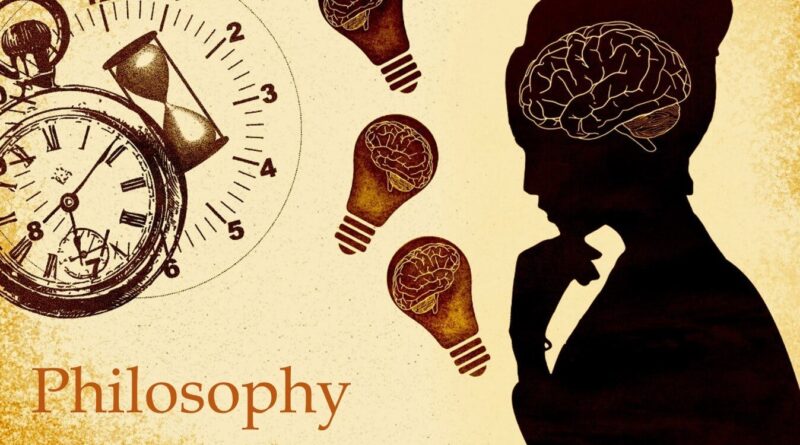The Mind and Reality: A Journey Through Metaphysics and Epistemology
Metaphysics and epistemology are two of the most fundamental branches of philosophy. They address some of the most profound questions humanity has asked throughout history: What is the nature of reality? What can we truly know? These inquiries form the cornerstone of our understanding of the world, the mind, and our place within it.
In this article, we embark on a journey through metaphysics and epistemology to explore the relationship between the mind and reality. We will examine the nature of existence, consciousness, and knowledge, offering insights into how these concepts interconnect and shape our understanding of the world around us.
What is Metaphysics?
Metaphysics is the branch of philosophy concerned with the fundamental nature of reality. It seeks to understand what exists and the nature of those entities. Metaphysical questions explore topics such as:
- What is existence?
- What does it mean to be?
- What is the nature of objects, events, and processes?
- What is time?
- What is space?
- Is there a distinction between mind and matter?
In its simplest form, metaphysics can be defined as the study of being (ontology) and the study of cause and effect (causality). Philosophers engage in metaphysical discussions to explore how reality is structured and whether our perceptions of the world align with its true nature.
The Mind-Body Problem
One of the most enduring questions in metaphysics is the mind-body problem: the question of how the mind relates to the physical body and the external world. This problem asks whether the mind is purely a result of physical processes in the brain, or whether the mind is a distinct entity with its own nature.
The mind-body problem is commonly associated with the dualism of René Descartes, who famously said, “Cogito, ergo sum” (“I think, therefore I am”). Descartes argued that the mind (or soul) and the body (or material world) are distinct substances that interact with each other but are not the same thing. In contrast, monism holds that there is only one substance or kind of reality, either material or immaterial.
Over time, philosophers have proposed various solutions to this dilemma. For example:
- Dualism: Descartes’ view, suggesting that the mind and body are separate entities. While the body is made of matter, the mind is made of a different substance, often thought of as non-material.
- Physicalism (Materialism): This view argues that everything, including the mind, is physical. Mental states are simply a byproduct of physical processes in the brain.
- Idealism: This theory posits that reality is fundamentally mental or immaterial. The physical world, according to idealists, is a construct of the mind, rather than an independent entity.
- Panpsychism: This belief suggests that consciousness is not limited to humans or animals but is a fundamental property of all matter, with even atoms and particles possessing some form of mental or experiential quality.
These views represent the ongoing philosophical struggle to understand the relationship between the mind and the world, and they continue to shape our thinking on the nature of reality itself.
What is Epistemology?
Epistemology, the study of knowledge, investigates how we acquire, justify, and understand knowledge. It concerns itself with questions like:
- What is knowledge?
- How do we know what we know?
- What are the limits of human knowledge?
- What is truth?
At its core, epistemology examines the relationship between the knower and the known. It asks how we come to understand the world and whether our beliefs are justified. Epistemologists investigate the nature of perception, memory, reasoning, and experience, questioning whether our cognitive faculties allow us to accurately grasp the nature of reality.
There are several key questions and concepts in epistemology that are essential to understanding our pursuit of knowledge:
- The Problem of Skepticism: Skepticism is the philosophical view that we cannot know anything with certainty. It challenges our assumptions about what is real and what we can truly know. For example, how can we be sure that the external world exists, or that we are not merely dreaming?
- Justification and Belief: In epistemology, it is not enough for a person to simply believe something; they must have justification for that belief. This leads to the problem of “what counts as justification?” and the exploration of various forms of evidence and reasoning that can validate beliefs.
- Empiricism vs. Rationalism: Empiricism holds that knowledge is derived from sensory experience—what we can see, hear, touch, and feel. In contrast, rationalism asserts that reason and intellectual processes are the primary sources of knowledge, independent of sensory experience.
- The Theory of Truth: Epistemologists explore the nature of truth itself. Is truth absolute, or is it constructed? Is there an objective truth that exists independently of our beliefs, or is truth relative to individual perspectives or cultural contexts?
The Relationship Between Mind and Reality
The question of how the mind interacts with reality has been a central theme in both metaphysics and epistemology. Philosophers have long debated whether our perceptions of the world reflect an objective reality or whether they are shaped by our mental faculties.
- Idealism and Perception: Idealist philosophers, such as George Berkeley, have argued that reality is fundamentally mental and that our perceptions of the world are a direct reflection of the mind. According to Berkeley, objects only exist insofar as they are perceived by a mind. This leads to the famous dictum “esse est percipi” (“to be is to be perceived”).
- Perception and Reality in Empiricism: On the other hand, empiricists like John Locke and David Hume believed that our minds are blank slates upon which the world impresses itself. Perception, according to this view, is the process through which our senses interact with the external world, and our minds construct knowledge based on these sensory inputs.
- Constructivism: Constructivists suggest that while there may be an external reality, our understanding of it is shaped by cognitive processes. In this view, we don’t merely perceive reality; we actively construct our version of it, influenced by prior knowledge, expectations, and experiences.
- The Role of Consciousness: Consciousness plays a central role in how we engage with and interpret reality. Some philosophers argue that consciousness is an essential component of the universe, giving rise to the mind’s ability to interpret sensory data and form beliefs about the world. Others believe consciousness arises purely from complex physical processes in the brain.
The relationship between the mind and reality is complex, and each of these views offers a different perspective on how we engage with the world. Are we passive observers, reflecting the world as it is? Or are we active participants in constructing our own version of reality?
Key Philosophical Challenges in Metaphysics and Epistemology
As we navigate the relationship between the mind and reality, several critical challenges arise. These challenges underscore the difficulty of answering the questions that metaphysics and epistemology pose.
- The Problem of Perception: One of the major challenges in understanding the mind’s relationship to reality is the problem of perception. Our senses are limited and often unreliable, raising the question: How can we trust our perceptions to accurately represent the world around us? This is the essence of the philosophical problem of illusion and hallucination.
- The Limits of Human Knowledge: Even if we accept that our minds are capable of perceiving the world, we must also confront the fact that human knowledge is limited. We cannot perceive everything, nor can we know everything about the universe. This raises the question: What is the scope of human knowledge, and can we ever fully understand reality?
- Relativity of Truth: In the modern world, the idea of objective truth has been challenged by relativistic views of truth. What is true for one person or culture may not be true for another. This raises the issue of epistemic relativism, which challenges the notion that there is a universal, objective truth.
- Mind-Independent Reality: Many philosophers wonder whether reality exists independent of the mind or whether it is always shaped by the mind. For example, phenomenalism holds that objects are only real in relation to our perception of them, while realism argues that objects exist independently of our minds.
Frequently Asked Questions (FAQs)
1. What is the mind-body problem in philosophy?
The mind-body problem addresses the question of how the mind (thoughts, consciousness, etc.) relates to the physical body and the brain. Is the mind a separate substance from the body, or is it simply a product of brain activity?
2. What is the difference between metaphysics and epistemology?
Metaphysics is the branch of philosophy that explores the nature of reality, existence, and the universe. Epistemology, on the other hand, focuses on the nature of knowledge—how we acquire it, what we can know, and the justification of beliefs.
3. What are some examples of metaphysical questions?
Examples of metaphysical questions include: What is the nature of time? Do abstract objects (like numbers) exist? What does it mean for something to exist? Is the universe infinite or finite?
4. Can we know the true nature of reality?
This is a central question in epistemology. Philosophers debate whether we can ever truly know the nature of reality or if our understanding is limited by our senses, cognitive abilities, and subjective experiences.
5. What is empiricism in epistemology?
Empiricism is the view that knowledge comes primarily from sensory experience. According to empiricists, we acquire knowledge by observing and interacting with the world through our senses, rather than through innate ideas or purely rational thought.
6. How does idealism differ from realism?
Idealism holds that reality is fundamentally mental or mind-dependent, while realism asserts that objects and events exist independently of our perceptions or beliefs about them.
7. What role does consciousness play in understanding reality?
Consciousness is the state of being aware of and able to think about one’s own experiences and the external world. Philosophers debate whether consciousness is a fundamental feature of reality or whether it emerges from physical processes in the brain.
Conclusion
The relationship between the mind and reality is one of the most profound and enduring questions in philosophy. Metaphysics and epistemology provide us with the tools to explore the nature of existence, consciousness, and knowledge, offering insights into how we understand the world around us.
Although many of these questions may never be definitively answered, the journey through metaphysics and epistemology helps us appreciate the complexities of the human mind and our attempts to comprehend reality. The ongoing debate about the nature of existence, perception, and knowledge continues to shape how we interact with the world and with each other.
Key Takeaways
- Metaphysics explores the nature of reality: It focuses on fundamental questions about existence, causality, time, space, and the mind-body relationship.
- Epistemology investigates how we know: It questions the nature of knowledge, belief, truth, and the limits of human understanding.
- Mind-body problem: Philosophers have long debated whether the mind is separate from the body or whether consciousness arises purely from physical processes.
- Perception and reality: The way we perceive the world influences how we understand reality, but perception is not always an accurate reflection of the world.
- Relativity and truth: Questions of truth and knowledge have become more complex in the modern world, with different perspectives offering alternative views on what constitutes reality.

